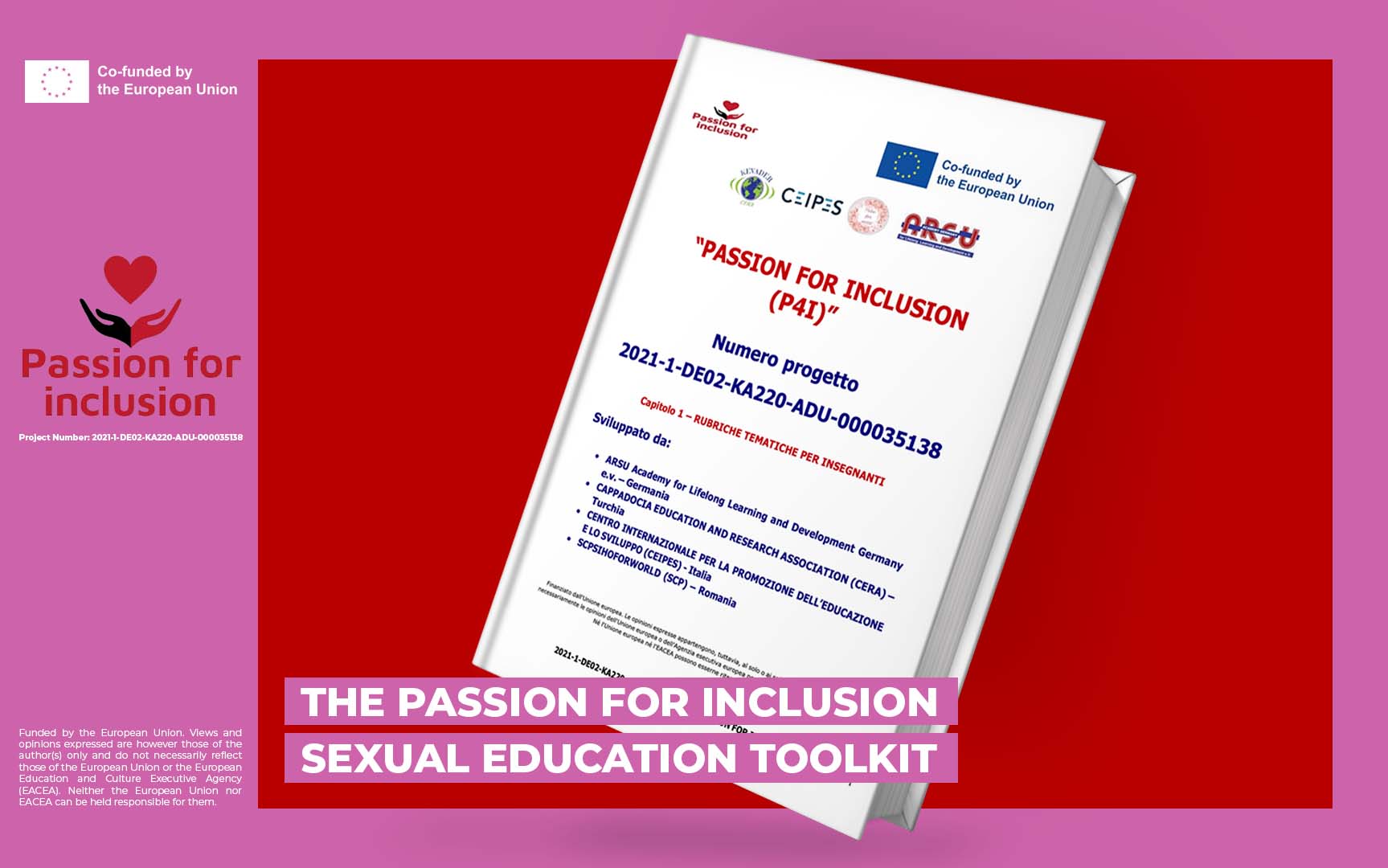The Passion 4 Inclusion Sexual Education Model Learning/Teaching Toolkit has been finalized, meeting the needs of the people with disabilities and of their caregivers. In fact, the toolkit includes 3 chapters:
- For teachers, available both in PDF and through the E-learning platform and app,
- For parents, available both in PDF and through the E-learning platform and app,
- For people with disabilities, available through videos and games on the E-learning platform and app.
The impact on educators, counselors, and specialists is equally significant. Through the P4I project, these professionals gain access to a comprehensive toolkit and training programs that enhance their understanding of sexuality education for people with intellectual disabilities.
The project addresses a critical gap in knowledge. The training module specifically designed for parents equips them with the skills and information needed to support their children’s sexual education. By bridging the communication gap between parents and their children with intellectual disabilities, the project contributes to healthier family dynamics.
About teachers, by integrating sex education programs into formal educational institutions, the project aims to instigate a positive change in the educational systems of partner countries.
At the organizational level, the P4I project has the potential to create a lasting impact. The development of a sex education model and methodology for people with intellectual disabilities aligns with the goals of the European Disability Strategy 2020, emphasizing the removal of barriers for people with disabilities and aligning with the broader goals of the European Union in promoting social inclusion, equality, and fundamental rights for all.
By presenting these topics in a manner that accommodates diverse learning styles, the project ensures that everyone can participate and engage meaningfully.
The toolkit has been developed according to the results of the cross-country need analysis and workshops carried out in Italy, Germany, Turkey and Romania. In fact, the introduction includes the results of the activities mentioned above, together with theoretical information and practical activities to carry out with kids/students with disabilities. The modules cover various topics, among which the sexual hygiene and safety, body and emotion recognition and perception, relationships, communication, confidentiality, gender, abuse and coping strategies.
You can download the Sexual Education Model Learning/Teaching Toolkit at the following links:
For parents.
Access the e-learning platform and mobile app for the material developed for people with disabilities.
Check more about what the consortium has done and be part of the change! You can visit the project Facebook page and the website to discover more.
